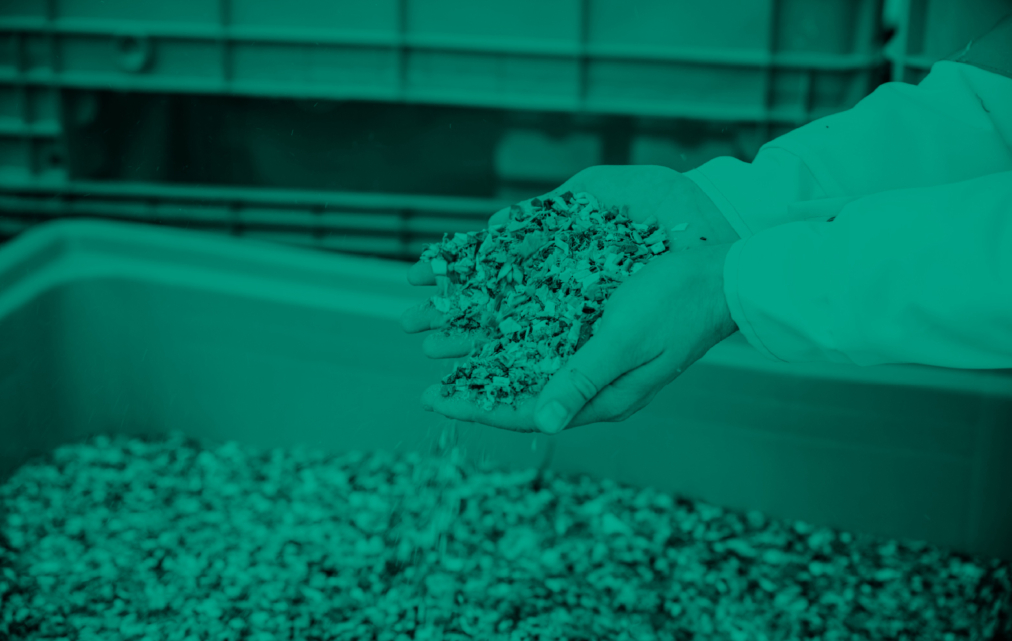B Corp 2.0 | Environmental Stewardship & Circularity
The new environment-focused impact topic ensures that companies understand and address their environmental impacts, take part in the circular economy and minimize negative impacts in their supply chain.

is a trained B Leader and sustainability and social innovation professional based in Innsbruck, Austria.
In the evolving landscape of corporate responsibility, B Lab’s proposed new standards for B Corp Certification are placing a significant emphasis on Environmental Stewardship & Circularity. This impact topic represents a crucial shift towards more sustainable and regenerative business practices, reflecting the urgent need for companies to address their environmental impact and contribute to a circular economy. Embracing environmental stewardship means contributing to a future where businesses, people, and the environment can thrive, without exploiting natural ecosystems and marginalized communities.
Why is This Topic Important to the World?
Environmental Stewardship & Circularity is a critical focus, particularly for producers and manufacturers, reflecting the urgent need to address global environmental challenges. With over two billion tons of solid waste generated annually and eight million metric tons of plastic entering our oceans each year, the need for sustainable approaches is clear. The Kunming-Montreal Global Biodiversity Framework, signed by 196 countries, underscores the urgency of halting and reversing nature loss by 2030.
By adopting ESC principles, businesses can play a crucial role in addressing climate change, resource depletion, and ecological degradation. This approach goes beyond traditional sustainability measures, emphasizing the need for companies to minimize negative impacts, pursue positive outcomes, and adopt circular practices throughout their operations and value chains. As such, ESC is not just a component of the new B Corp 2.0 standards; it’s a vital approach for businesses looking to contribute meaningfully to the purpose economy.
Why Will This Topic Make Businesses More Resilient?
Adopting the ESC requirements can create advantages, particularly for resource security and supply chain stability. For example, companies like BASF SE and IKEA have demonstrated the benefits of reducing dependence on virgin resources. BASF’s ChemCycling initiative converts plastic waste into new materials, ensuring resource availability while mitigating risks associated with price fluctuations. Similarly, IKEA’s commitment to using recycled materials and its furniture leasing program enhances supply chain resilience, allowing for confident long-term planning. These proactive measures not only prepare companies for future regulatory changes but also position them as leaders in sustainability.
ESC principles are also a powerful driver of innovation. Companies like HP are leveraging circular solutions to create groundbreaking products and processes. HP designs electronics using ocean-bound plastics to reduce e-waste. The aim of focusing on creativity and adaptability is to decouple growth in resource use from population and income growth.
What’s Required in This Topic?
Environmental assessment, strategy, and the implementation of holistic circularity principles underpin this impact topic. By embedding these principles and practices into their operations, B Corps can transition toward nature-positive business models that regenerate ecosystems rather than exploit them.
The new standards require companies to evaluate their operations and value chains to identify areas of significant environmental impact. This assessment is an essential step to ensure businesses understand their ecological footprint and dependencies. By pinpointing actual and potential negative impacts, companies can create a baseline for informed decision-making. B Lab has aligned this topic with global frameworks like the Kunming-Montreal Global Biodiversity Framework and the Paris Climate Agreement, bringing the concept of ecological thresholds into business practices.
Once environmental impact is assessed, most companies are expected to craft a robust Environmental Strategy. This strategy needs to focus on mitigating identified impacts while embracing circular economy principles. The standards emphasize prioritising renewable, reused, or recycled materials over virgin or non-renewable resources. Additionally, eliminating single-use products and packaging becomes a central goal, where in previous versions of the B Corp standards it was a way to demonstrate best practice, it’s now seen as a minimum standard.
The hierarchy of circular actions outlined in the standards ensures that businesses adopt impactful practices systematically. Collaboration with suppliers is vital, as traceability and procurement practices play a significant role in achieving circularity objectives.
B Corp 2.0 emphasises evidencing implementation of strategies through tangible actions that align with holistic circularity principles. This involves reimagining supply chains, redesigning products, and adopting zero-waste practices. For example, B Corps like Taos Ski Valley have successfully implemented waste reduction initiatives such as food dehydration systems to convert organic waste into soil-enhancing materials. In June 2020, VEJA started a project called “Clean, Repair, and Collect” to make their shoes last longer and they have repaired over 27,000 pairs since then.
By focusing on assessment, strategy development, and implementation, the proposed B Corp 2.0 standards provide a clear roadmap for B Corps to contribute positively to planetary regeneration while driving innovation and sustainability across industries.
How Can Your Company Prepare?
Three things to do to meet some of the minimum requirements under this impact topic:
- Conduct an Environmental Impact Assessment: Evaluate your operations and value chain to identify areas of significant environmental impact. This assessment will form the foundation of your strategy to stay within ecological thresholds.
- Engage Your Value Chain: Work with suppliers and partners to promote sustainable practices throughout your value chain. Make it a collaborative approach, not just passing the buck to your partners. Think of it as a Buyer’s Code that emphasises two-way accountability and responsibility.
- Implement Circular Practices: Introduce systems for recycling even those hard-to-recycle materials in your facilities, and reduce reliance on virgin non-renewable materials by exploring ways to close the loop in your production processes.
By taking these steps, your company can not only prepare for the new B Corp standards but also position itself as a leader in environmental stewardship and circular economy practices.
And if you need some support and guidance on planning and implementing any of this work, get in touch with Junxion. We’re here to help.
